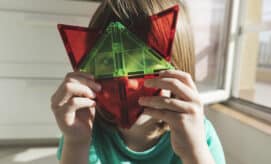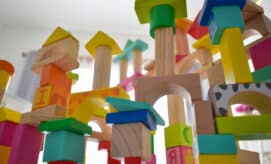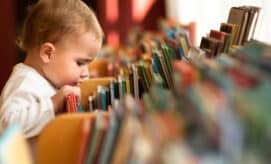Learning how to count is one of the first foundational math or “number sense” skills that young children develop. While it might seem basic, learning to count is a complex process for little learners that requires guidance from caregivers who can introduce numerical language and model how to count objects. Early childhood educators can help children build these foundational skills by engaging them in playful, number-themed activities.
Number Sense as a Learning Foundation
Number sense is a foundational mathematical skill. An article posted by ZERO to THREE describes number sense as “the ability to count accurately—first forward. Then, later in school, children will learn to count backwards. A more complex skill related to number sense is the ability to see relationships between numbers—like adding and subtracting.”
Once young children have a foundational understanding of numbers and counting, they can build upon that understanding to learn more complex mathematical skills. It’s important for young children to be introduced to numerical concepts during early childhood so that they will be successful in kindergarten and beyond.
Number Sense & Counting: Activities for Early Learning Programs
Learning to count is foundational to number sense. In her article Counting on Counting, Dr. Platas, chair of the Child and Adolescent Development Department at San Francisco State University, explains, “Counting activities should be intentional, purposeful, playful, and FUN. For the teacher, learning how to include them in the preschool classroom throughout the day requires creativity and planning.”
To help you get started, below are some fun counting and number sense activities that you might want to try with the early learners in your program.








